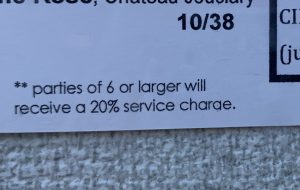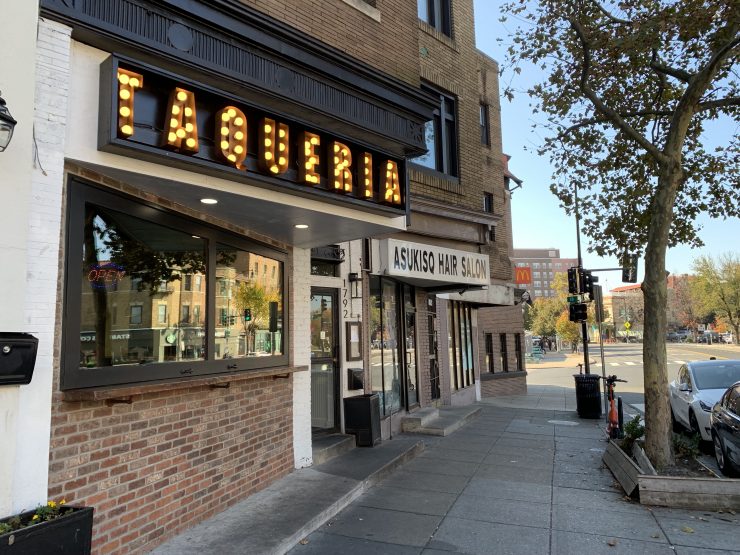Adams Morgan resident John Wilks initially assumed the “service fee” he paid so frequently at restaurants went to servers and bartenders.
He was wrong.
“For a while, I thought the money went to the waiter, but I didn’t realize I was just paying more to the restaurant,” Wilks said. “I don’t understand what I’m being charged for, but it’d be cool if more places explained it.”
The Federal Trade Commission aims to clear up that confusion. The commission in October announced it is looking to manage service fees to ensure consumers understand what they are paying for, according to the “Trade Regulation Rule on Unfair or Deceptive Fees.”
This does not necessarily mean the commission will ban service charges, but businesses must clearly state what the charge goes to.

“It doesn’t stop me from eating out,” Wilks said. “But, like, where does my money go? Because I know I’m paying for more than my meal and the waitress.”
The proposed rule states it would ban “unfair or deceptive practices relating to fees for goods or services, specifically, misrepresenting the total costs of goods and services by omitting mandatory fees from advertised prices and misrepresenting the nature and purpose of fees.”
The commission said it believes deceptive or unfair fees are prevalent and the organization needs to address it.
Adams Morgan restaurant owners have mixed feelings about possible changes in how they charge fees.
On the one hand, Alana Jackson, manager of Taqueria Al Lado in Adams Morgan, said transparency is important to both restaurants and consumers.
During the COVID-19 pandemic, some restaurants added service charges to bills to help run the business. These charges were separate from gratuity, and they ranged from 2% to 20%.
“I think that [service charges] have caused a lot of animosity from the part of consumers,” Jackson said. “They feel like they don’t know how much a meal is going to be or how much extra will be charged because they sat down.”
She said regulating the service charges “should take place” to create the most transparency between the business and the consumer.
“From our perspective, we think it’s fair that service charges are as upfront and make as much sense to most people as possible,” she said.

Jackson also said undisclosed or unexplained fees could lead to wait staff receiving less tips.
While Jackson agrees the Federal Trade Commission should regulate service fees, Mezè Restaurant manager Ali Sen hopes the federal government stays out of his business.
Sen, who helps run the Mediterranean restaurant in Adams Morgan, said the owner has not implemented a service charge but the idea is floating around.
“Everything’s going up, like the rent and this and that, so I understand the owner,” Sen said. “It’s not a good idea.”
Sen said the government does not need to add more control over businesses as restaurants in Adams Morgan try to work with what they make.
Some Adams Morgan restaurants advise patrons of the extra charge on the menu, while other businesses just add the fee to the bill.
The commission is accepting comments from the public on the proposed rule until Jan. 8. So far the commission received more than 12,000 comments, with a majority supporting “government action or described negative experiences relating to fees that suggested support for such action,” according to the docket.
The commission will consider revising the rule based on the comments, and then implement it.















Add comment